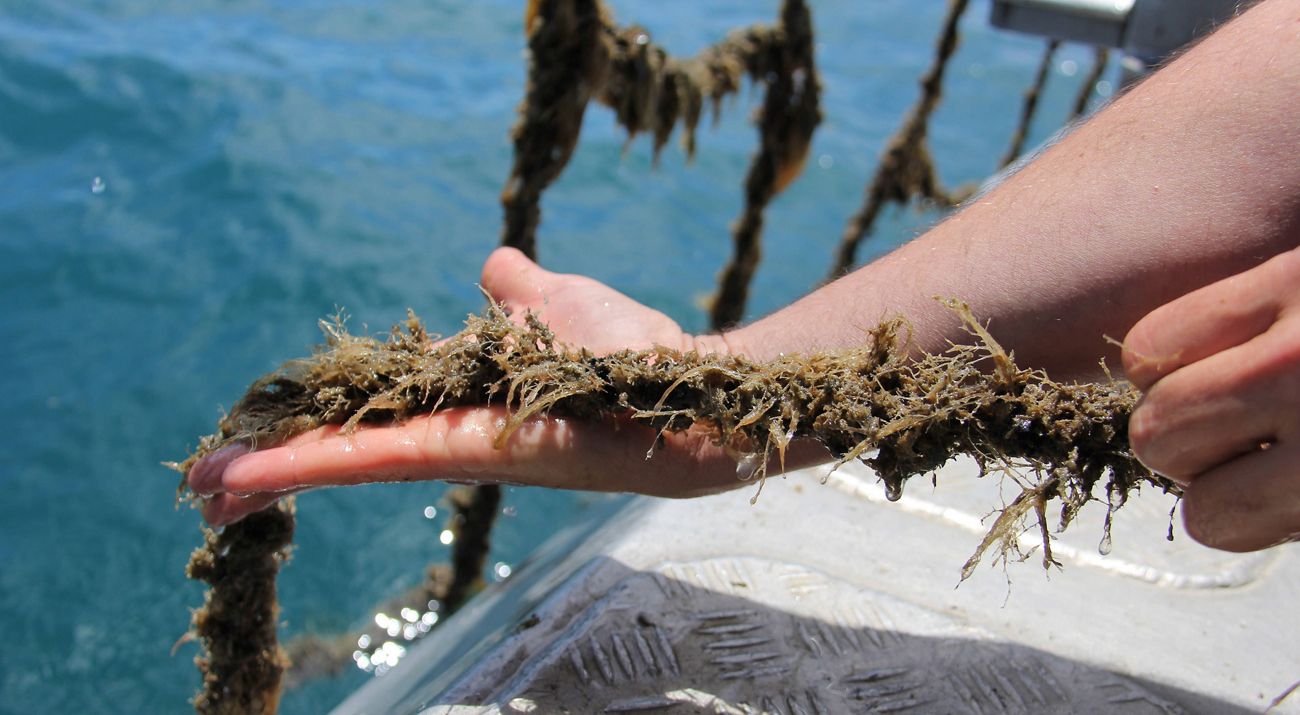Blue Revolution Fund Exceeds Target, Raising €93 Million to Invest in Sustainable Aquaculture Systems and Technologies
A collaboration between Hatch Blue and The Nature Conservancy, sustainability-focused impact investment fund raises the bar for the industry

Media Contacts
-
Ann Kaiser
The Nature Conservancy
Mobile: +12032430345
Email: ann.kaiser@tnc.org -
Georg Baunach
Hatch Blue
Phone: +491725463249
Email: georg@hatch.blue
The Blue Revolution Fund (BRF)—an innovative, sustainability-focused aquaculture impact investment fund established by Hatch Blue and advised by global environmental nonprofit The Nature Conservancy—closed with €93 million in commitments. These commitments will enable BRF to invest in more than a dozen early-stage aquaculture ventures with the aim to improve ocean health, address the impacts of climate change, and support coastal communities.
Our fastest growing form of food production, aquaculture now provides more seafood than wild fisheries; by 2030, the sector is projected to reach 109 million metric tons in production, an increase of 32 percent over 2018. With 90 percent of marine fish stocks either overfished or fully exploited, sustainably managed aquaculture represents an important opportunity to meet rising food demands while easing pressure on the planet’s aquatic ecosystems and supporting economic development, a set of gains collectively worth billions of dollars to people and nature every year.
“With the right practices and technologies, aquaculture can be a force for good, providing a low-carbon food source while actively supporting ocean health,” said Robert Jones, Director of Global Aquatic Food Systems for The Nature Conservancy. “Through strategic investments, BRF aims to accelerate the development and adoption of technologies and farming practices that have the potential to move aquaculture closer to realizing its nature-positive potential.”
BRF’s unique structure promotes both its financial and environmental success. As BRF’s investment manager, Hatch Blue is leveraging its previous fund management experience and expertise in aquaculture, alternative seafood, and blue carbon to oversee fund operations, investment execution, and asset management.
“We are a knowledge-driven specialist firm with synergetic business activities,” said Georg Baunach, Managing Partner and Co-founder of Hatch Blue. “Across 32 team members, we consist of two investment teams, a consulting team, an innovation programs team, and a media marketing agency with an adjacent news website. Our setup generates unique insights that allow us to add value to our portfolio firms, investors, and other clients. The final closing of the BRF above our target of €75 million is a promising sign that the investment community values this approach.”
A global environmental nonprofit grounded in rigorous science, The Nature Conservancy acts as BRF’s conservation manager, ensuring that investments deliver meaningful environmental outcomes.
“Private capital needs to play a crucial role in addressing the climate and biodiversity crises,” emphasized Lauren Ferstandig, Managing Director of NatureVest, TNC’s in-house impact investing and sustainable finance team, which worked closely with Hatch Blue to build impact outcomes into BRF investment structure. “The Blue Revolution Fund is an example of a scalable investment solution that not only delivers a financial return to investors but also models a more sustainable approach to aquaculture investing by building measurable conservation outcomes into every investment.”
BRF targets investments into in next-generation fish farms, regenerative seaweed and bivalve farming, nutrition, enabling technology, health and genetics, and alternative seafood. To date, the fund has made investment into six portfolio companies:
- CageEye (FKA Bluegrove): A Norwegian company focused on improving feeding processes in aquaculture. CageEye uses echo-sounding devices to monitor fish behavior in real time, allowing improved efficiency of feeding strategies.
- ChucaoTec: An Irish-Chilean company producing nanobubble oxygenation technology for the salmon and shrimp farming sectors. Chucaotech's innovative technology is set to revolutionize oxygenation practices in aquaculture, enhancing sustainability and efficiency.
- DeNova: A Canada-based fully integrated single-cell protein producer. DeNova aims to replace soy protein and fish meal in aqua feeds, addressing crucial environmental challenges in many aquaculture supply chains.
- New School Foods: A Canada-based food technology company focused on developing new plant-based seafood alternatives. New School Food’s unique technology delivers an animal-like structure and a familiar cooking experience.
- Peptobiotics: A Singapore-based biotechnology company developing innovative recombinant antimicrobial peptides to combat vibrio, improve health and survival rate of aquaculture shrimp, and decrease farmer’s reliance on antibiotics.
- Wholechain: A U.S.-based company with a SaaS business model-based traceability solution. Wholechain's solution caters to multiple protein and non-protein products, offering comprehensive traceability across various supply chains.
“The fund focuses on solutions that provide both financial and environmental returns, such as innovative feed ingredients that surpass existing ingredients in sustainability while maintaining cost-competitiveness,” said Baunach. “Technologies, health, or genetic solutions that enhance feed conversion ratios or survival rates also present interesting opportunities due to the current surge in input costs and their close alignment with reducing Scope 3 emissions.”
In the coming months, BRF anticipates investing in around nine additional companies and setting the stage for sustainable investments on a larger scale. Early next year, TNC and Hatch Blue will release guidance resources for pre-investment conservation diligence and portfolio impact measurement and reporting in the aquaculture impact investment sector. These resources will support other investors in choosing investment opportunities that generate attractive financial returns and positive environmental impacts.
The Nature Conservancy is a global conservation organization dedicated to conserving the lands and waters on which all life depends. Guided by science, we create innovative, on-the-ground solutions to our world’s toughest challenges so that nature and people can thrive together. We are tackling climate change, conserving lands, waters and oceans at an unprecedented scale, providing food and water sustainably and helping make cities more resilient. The Nature Conservancy is working to make a lasting difference around the world in 83 countries and territories (39 by direct conservation impact and 44 through partners) through a collaborative approach that engages local communities, governments, the private sector, and other partners. To learn more, visit nature.org or follow @nature_press on X.